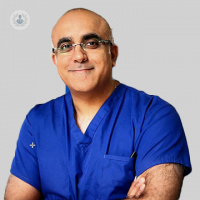Why is a breast reduction performed?
Written in association with:Breast reduction surgery, or reduction mammoplasty, is a procedure designed to reduce the size of overly large breasts. For many women, having disproportionately large breasts can lead to both physical discomfort and emotional distress.
Common issues include chronic neck, back, and shoulder pain, skin irritation, difficulty finding well-fitting clothes, and limited ability to engage in physical activities. Breast reduction surgery offers relief by removing excess breast tissue, fat, and skin, resulting in a more proportionate and comfortable breast size.

The procedure
The procedure involves making incisions on the breasts to remove the unwanted tissue. The remaining tissue is then reshaped, and the nipple may be repositioned for a more natural appearance. The specific techniques used in breast reduction depend on factors such as the patient’s anatomy and the desired outcome.
In some cases, liposuction may be used in conjunction with tissue removal to further contour the breast shape. While the surgery typically results in scarring, the long-term benefits of pain relief and improved mobility often outweigh these concerns for many patients.
When and why it is performed
Breast reduction is not solely a cosmetic procedure; it is often performed for medical reasons. Women suffering from physical discomfort due to large breasts may be eligible for the surgery through insurance coverage if the surgery is deemed medically necessary. However, the decision to undergo breast reduction is personal and can significantly improve a patient’s quality of life.
Many women report immediate relief from pain after surgery, along with an increased ability to participate in physical activities, improved posture, and a boost in self-confidence.
Recovery
Recovery from breast reduction surgery varies, but most patients can return to light activities within a week or two. However, it may take several weeks for swelling to subside and for the final results to become fully apparent.
As with any surgery, there are risks, including infection, changes in breast sensation, and potential complications with breastfeeding. A thorough consultation with a board-certified plastic surgeon is essential to discuss individual needs, goals, and the potential risks of the procedure.
In summary, breast reduction surgery offers significant physical and emotional benefits, providing relief from discomfort and enhancing a woman’s overall well-being.


